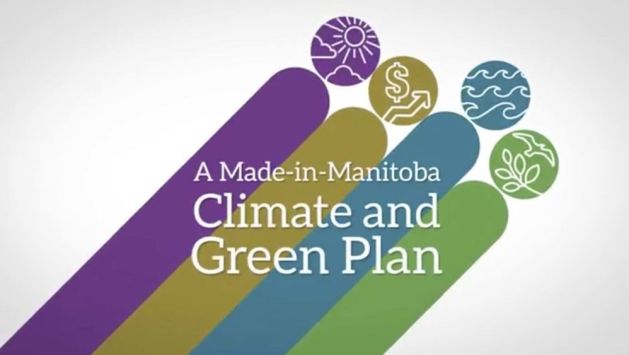Manitoba eliminates carbon tax from its climate and green plan
WINNIPEG, Man. – The Manitoba government has scrapped the carbon tax from its Made-in-Manitoba Climate and Green Plan.
Premier Brian Pallister made the announcement today, saying, “We are standing up for Manitobans, by saying ‘yes’ to Manitoba’s green plan, and ‘no’ to a carbon tax.”
The provincial government had announced in April it would implement a flat tax rate on carbon of $25 per ton with no increases, which was set to kick in this past September. The tax was expected escalate the cost of diesel by 6.7-cents-per-liter, equating to the Manitoba Trucking Association (MTA) said would be an estimated $50 million in fuel tax paid by heavy diesel vehicles in the province.
The Manitoba government planned to impose the carbon tax in its Made-in-Manitoba plan to avoid the federal government from stepping in and doing it for them.
“Our Made-in-Manitoba plan proposed a flat, fixed tax rate that would provide stability to consumers, business, industry and agriculture,” Pallister said in April “It would save Manitoba families and businesses more than $260 million over five years, compared to the Ottawa plan. Most importantly, all monies collected under our plan would be returned to Manitobans, in the form of tax reductions.”
The government received some pushback from the trucking industry for not directing carbon tax revenue into fuel efficiency initiatives.
But Pallister said the federal government planned to implement a carbon tax on Manitobans regardless.
“Ottawa acknowledged that our plan is the best in Canada,” Pallister said. “But they have also stated that they will impose their higher – and rising – carbon tax on Manitobans after one year. This would mean twice the tax, for poorer results. That would threaten jobs and economic growth throughout our province and take money off the kitchen tables of Manitoba families.”
Terry Shaw, executive director of the MTA, said though no one wants tax increases, the industry still supports trucking efficiency policy and programing.
“The previous reality was that if a carbon tax on heavy diesel vehicles was going to be collected, it should be invested in heavy diesel efficiency,” said Shaw. “We can still partner on efficiency policy and programing for our industry and we have heard, informally, from the government they are still intending on doing so.”
The Made-in-Manitoba plan now focuses on four pillars: cleaner water, conservation of natural areas, effective steps to address climate change, and strengthening the economy.

Have your say
This is a moderated forum. Comments will no longer be published unless they are accompanied by a first and last name and a verifiable email address. (Today's Trucking will not publish or share the email address.) Profane language and content deemed to be libelous, racist, or threatening in nature will not be published under any circumstances.
As a heavy truck owner operator I and happy to hear that you will not be collecting the carbon tax. I have purchased a new 0 emission truck in 2018. And to be taxed on emissions that I’m not producing anymore would be salt in a already very expensive wound. As the new trucks with 0 emissions technologies have proven to be much less reliable then the previous dirty trucks, along with the extra expenses of the 0 emissions technologies it is hard enough to continue within the industry as it is without the addition of a carbon tax. The addition of a carbon tax would increase my daily expenses by approximately $40.00 per day. An overall annual cost of $14,600.00 per year per truck.